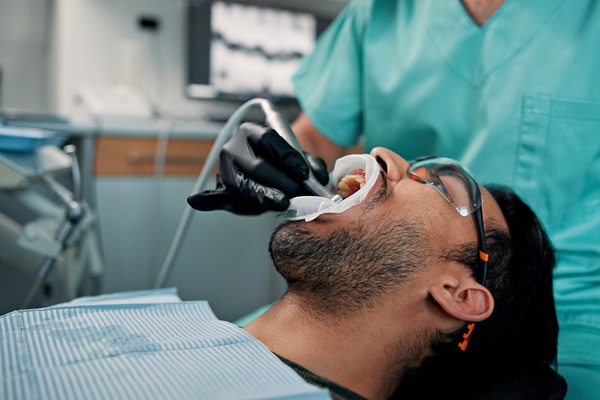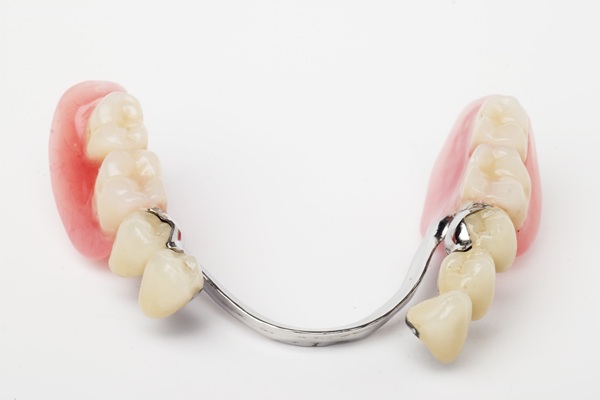General Dentistry – When Is a Dental Crown Recommended?

A dental crown is one of the most common types of treatment in general dentistry. It is usually applied when a tooth has become damaged and requires extra support to maintain functionality. A dentist may recommend a crown if there is no other way to save the tooth. Before agreeing to the procedure, patients should ask the dentist why a crown is necessary and how the process works to gain a greater understanding of what is to come.
Reasons for a crown
A tooth may require a crown for a variety of reasons, all of which are dependent on the patient’s lifestyle, diets, oral hygiene habits, and injuries that have affected the mouth. Sometimes teeth can be fixed with smaller procedures, like a bonding or filling, but a crown comes into play when teeth are severely damaged from various causes.
Decay
If not cared for properly, teeth can easily start to decay from bacteria that naturally form in the mouth. Oftentimes, a patient’s diet includes too many sugars and carbohydrates that cause plaque to build around teeth, sealing in bacteria. Once the decay reaches the inside of the tooth, called the pulp, it can cause pain, and a root canal procedure is needed to remove the pulp and the top of the tooth. A crown is necessary to cap off the tooth afterward.
Wear
Teeth naturally wear down over time from chewing and grinding. Sometimes teeth can get chipped or cracked, or entire pieces can break off, weakening the structure and increasing the chance of complete tooth loss. A crown can reinforce the tooth by sealing the cracks and preventing further damage.
Dental procedures
Occasionally, other dental procedures require a crown to hold new appliances in place. Bridges, which are used to fill in the gaps of missing teeth, need crowns to adhere to the natural teeth on either side of the gap. A filling in general dentistry often involves filing down a section of tooth, and a crown can replace any height that was lost. Crowns are also used to top off dental implants.
Discoloration
Perhaps the simplest of reasons, a crown can be used to conceal oddly shaped or discolored teeth. The dentist can match the crown color or size to that of the patient’s other teeth, creating a whole, even smile.
The procedure
Expect two general dentistry visits to receive a permanent dental crown. The first visit includes examining the problem tooth, reshaping the tooth to make room for the crown, and taking an impression of the tooth. The impression is usually sent to a lab outside the dental office. Once the permanent crown is made, patients return for a second visit to receive it. A temporary crown is placed in between these visits.
Conclusion
Dental crowns can fix many problems, but they are not necessarily a patient’s only option. Discussing treatment in detail with a dentist allows patients to choose what is right for them.
Request an appointment here: https://lincroftvillagedental.com or call Lincroft Village Dental Care at (732) 842-5005 for an appointment in our Lincroft office.
Check out what others are saying about our services on Yelp: Read our Yelp reviews.
Recent Posts
Deep dental cleaning is a way to treat severe cases of gum disease. However, it is not always necessary for all cases of gum disease. By understanding when and why a dentist recommends a deep dental cleaning, you can feel more comfortable throughout the consultation and treatment process. Every dentist utilizes deep dental cleaning differently and…
There are many benefits to removable partial dentures instead of alternative treatment solutions (i.e., implant-supported bridges). Understanding the advantages of partial dentures can help you make the most informed choice possible about the best way to replace your missing teeth.Removable partial dentures are a form of teeth replacement for a section of missing teeth. They…
Full mouth reconstruction involves replacing and repairing damaged or missing teeth. A treatment plan includes a variety of different treatments, and one common procedure is known as dental bridge treatment. This review takes a closer look at how general dentists use dental bridges to replace teeth during full mouth reconstruction. Most patients have several available treatment…
Experiencing a need for a denture repair? Unfortunately, dentures are extremely prone to accidents, which can result in damages such as cracks or chips. When this happens, a lot of wearers wonder what they should do next. The answer is simple, visit a dentist's office.Denture repair should always be done by a dentist, but why?…


